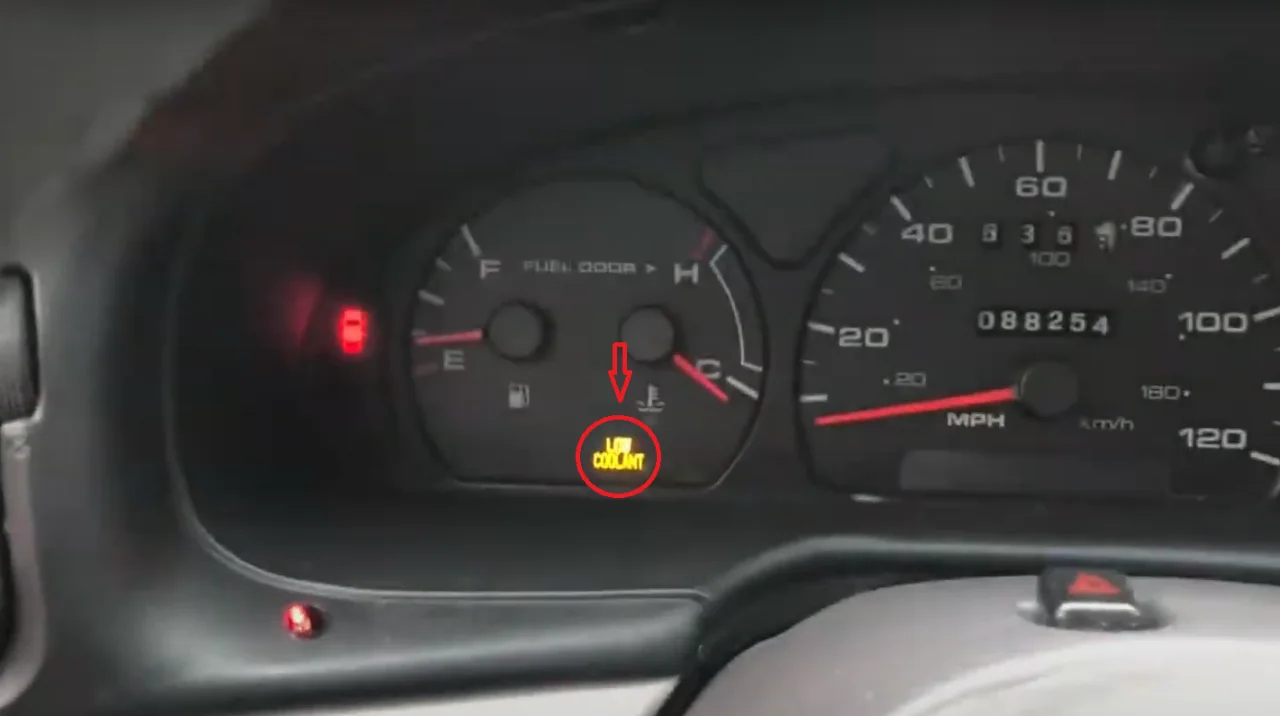Ford has been at the forefront of producing quality automobiles for over a century. That, alone, speaks to the quality you’d expect, especially on their engines. Have you heard or tried out the Ford 2.5 Duratec engine? It is a 4-cylinder 2.5l naturally aspirated engine from Ford Motor used for midsize power cars, sports utility vehicles, and cargo vans.
However, car enthusiasts won’t fail to ask whether the Ford 2.5 Duratec is as reliable as other engines. Sometimes, the Ford owners will wonder what the 2.5L Duratec problems are.
This article looks into the Ford 2.5 Duratec and airs its strengths and weaknesses to sum up, the whole idea of reliability. Let’s roll!
What Is The Ford 2.5L Duratec Engine?
Overview
The Ford 2.5L Duratec engine is also known as the Duratec 25. It was introduced by Ford in 2008 but was available on the North American market from 2009. However, Ford ceased production and use of the engine in 2019 to pave the way for the new Ford’s EcoBoost family of engines.
It features a DOHC (Dual Overhead Cam) design and an in-line configuration and is a naturally aspirated four-cylinder engine. It dishes out 136-172lb-ft torque and 156-175 horsepower. Like all other engines, the Ford 2.5L Duratec has its share of pros and cons.
Pros
- Cost-efficient
- The engines’ mechanics are perfectly reliable
- The engine lasts longer
- Easy to maintain
Cons
- Minimal power output
What Cars Have The Ford 2.5L Duratec Engine?
- 2009-2019 Ford Escape
- 2010-2011 Mercury Milan Hybrid
- 2010-2013 Ford Fusion Hybrid
- 2010-2013 Ford Fusion
- 2010 – 2013 Mercury Milan
- 2011 Lincoln MKZ Hybrid
- 2014-2018 Ford Transit Connect
Ford 2.5L Duratec Engine Reliability
Ford made the 2.5L Duratec as a mid-power engine, mostly to enable you to move from point A to B. That’s why it wasn’t loaded with too much power. Therefore, you should use the engine to perform light duties for it to last long.
The Ford 2.5L Duratec is reported to last around 200,000 miles. However, some users have reported an upward of 300,000 miles, citing proper maintenance as the key factor.
This is a pretty much reliable engine and ideally one of the best from Ford. It also comes with several pros to quench your engine requirements.
How 2.5L engine owners talk about its reliability:
“Excellent engine, very reliable. Just not very powerful… I miss my V6 and V8 vehicles. I’m on my second Escape, my previous one was an 08 that my coworker now has with over 220K miles on the original drivetrain with no major repairs.”
dogememe – https://bobistheoilguy.com/forums/threads/how-is-the-ford-2-5-liter-engine.297547/
“180,000 on my 2.5L, 2010, Ford Fusion Hybrid. Still going strong. No engine related issues.”
Best F100 – https://bobistheoilguy.com/forums/threads/how-is-the-ford-2-5-liter-engine.297547/
Read more: Dodge Ram 6.4L Hemi Problems
Ford 2.5L Duratec Engine Problems
As said earlier, the Ford 2.5L Duratec comes with its share of pros and cons. What are the Ford 2.5L Duratec engine problems you’re encountering? Well, the engine’s users have reported a couple of issues they’ve engaged with the engine. This section deals with three of the major problems faced and offers solutions concerning the same.
Oil Leaks Problem
There’s hardly any car owner that won’t complain about an oil-leak problem from time to time. However, the problem seems to manifest itself more in the Ford 2.5L Duratec, making it one of the most potential issues you’ll encounter from the engine.
Symptom
The most outright sign that you might be having an engine oil leak is through the ‘Engine Oil Light.’ However, physically spotting an oil leak problem is fairly easy, as leaks are primarily visible. Therefore, if you suspect an oil leak problem, take your time and look for any visible leaks around the engine block. If that doesn’t work, then observe the behaviour of the oil levels in the oil tank. If you recently filled up your reservoir and the levels went down in a suspecting manner, then you might be suffering from an oil leak problem.

Credit: DunePearlEdge
Cause
Several factors can bring about oil leak problems. They include oil pan leaks, improper or worn-out seals, and degraded engine gaskets. It might be brought about by deteriorated valve cover gaskets or missing or loosely-connected oil pan drain plugs.
Solution
It would be best if you kept up with your maintenance cycle to prevent oil leaks. Make sure to constantly have a professional check your engine for any loose valves or missing parts that need to be tightened or replaced. Remember, driving on an excessively low oil level can destroy your engine.
Coolant Consumption
The engine coolant is an essential part of every engine because it helps to dissipate heat from the engine block. It is, therefore, necessary that the coolant level be kept at healthy levels. When you find out that your coolant is being used up fast, then you might as well guess that there’s a problem underway.
Symptom
The most outright symptom of high coolant consumption will be the “low coolant light” that shows up in the dash. However, since some cars might not have such a system, another sign will be excessive overheating within the engine block.

You can also note the coolant loss through observing signs such as coolant leaks.
Cause
Several factors might bring about excessive coolant consumption. They include;
- A faulty radiator cap
- Overfilling the cooling system
- Coolant leaks
- A blown gasket, cracked cylinder head, or engine block
Solution
Fixing the coolant consumption problem calls for you to have the cooling system of your car checked by a professional as frequently as possible. If any leaks are found, the issue should be resolved as quickly as possible.
Transmission Problem
Some Ford users complained about faults in transmission as one of the main 2.5L Duratec problems. As you know, transmission is a vital element of every car, and driving with a faulty one is dangerous.
Symptoms
The symptoms of a transmission problem include;
- ‘Check Engine’ light
- Grinding and shaking while in motion
- Burning smell
- Odd noises when braking
Cause
The leading cause of transmission problems is low fluid levels when your fluid levels, the engine’s moving parts keep on grinding to one another, evident from the odd noises you receive from your engine block.
Other causes are delayed shifts and gear slipping. All these can lead to serious transmission problems.
Solution
Once you experience a transmission problem, it is advisable first to replace the affected parts. Again, make sure to visit a professional who’ll run an evaluation of the problem and advise you on the next cause of action. Don’t forget to adhere to your service and maintenance cycle.
Conclusion
In light of the above, it is safe to conclude that the Ford 2.5L Duratec is a pretty reliable engine. Even though it has a weaker power output when put against other engines, it stands out in terms of longevity and reliability in service. With proper maintenance, the engine will serve you longer than you’d expect.
Read more: 7.3 Powerstroke Problems
FAQs
1. Are Duratec and Zetec engines the same?
No! The Duratec differs from the Zetec in several ways. First, Duratec is an aluminium block, while the Zetec is an iron engine block. Again, the Zetec features belt-driven non-interface cams, while the Duratec has a chain-driven interface cam.
2. Which is better, Zetec or Duratec?
Duratec is better in terms of efficiency and is also more potent than Zetec. It also pollutes less!
Helpful resources:
